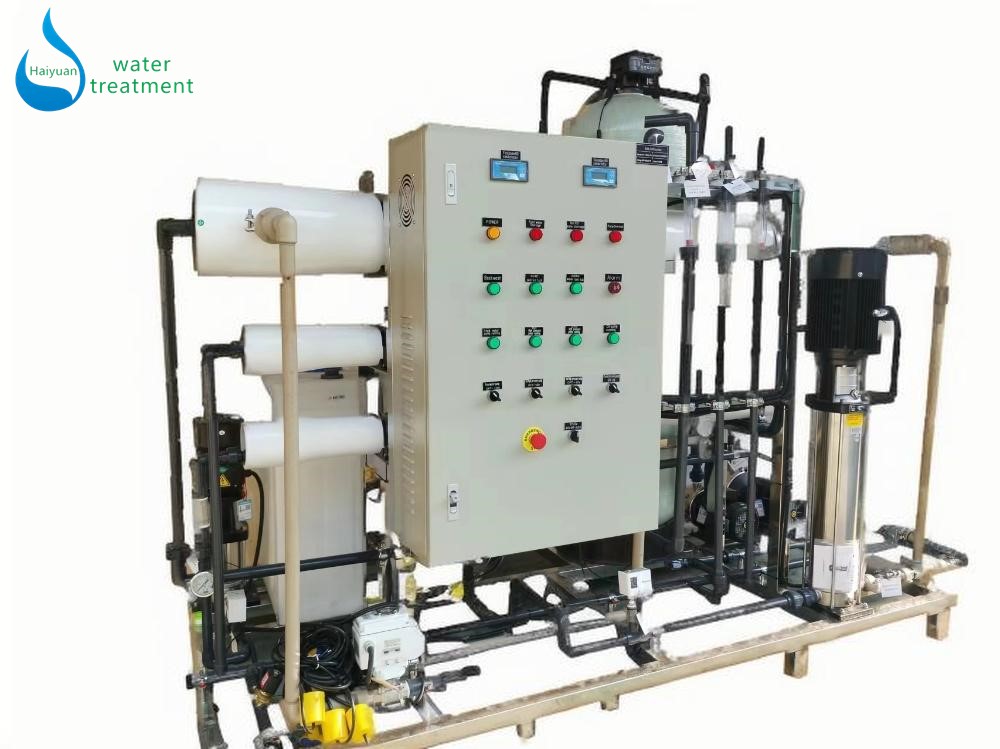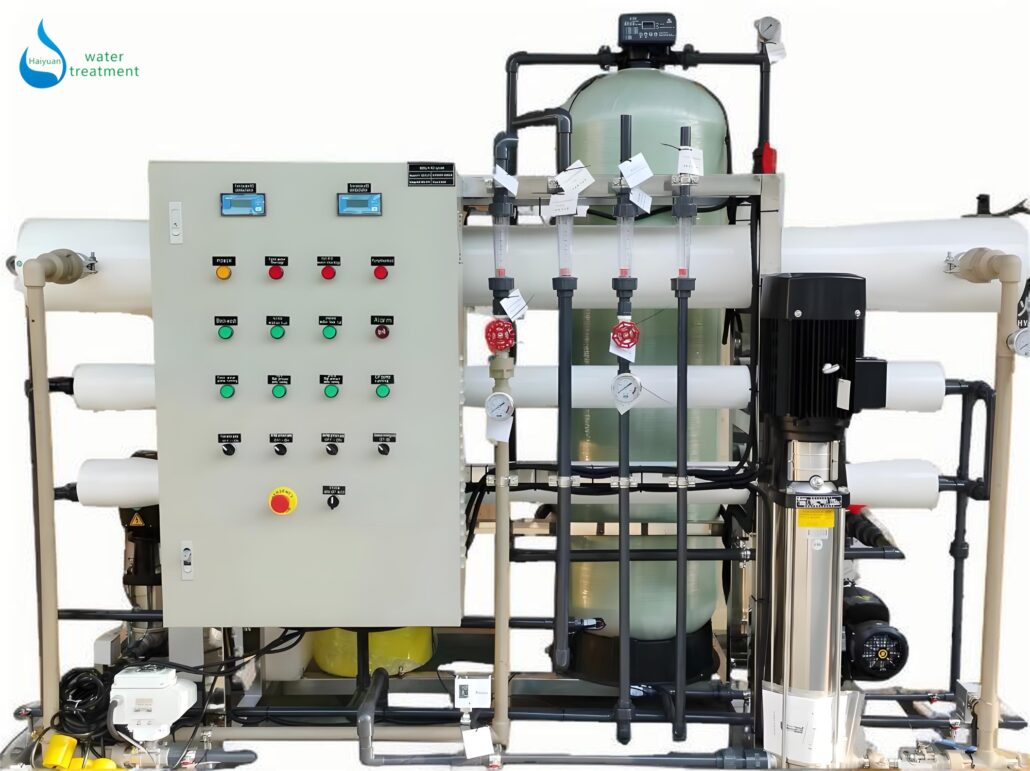Borehole Water Filtration Purification System Guide
What is a Borehole Water Filtration System?
A borehole water filtration system is a series of processes that removes contaminants from borehole water to improve its quality. Boreholes are drilled deep into the ground to access underground water sources, which can often be contaminated with suspended solids, pathogens, and minerals like iron and manganese. The filtration system works to eliminate these impurities, providing clean and potable water.
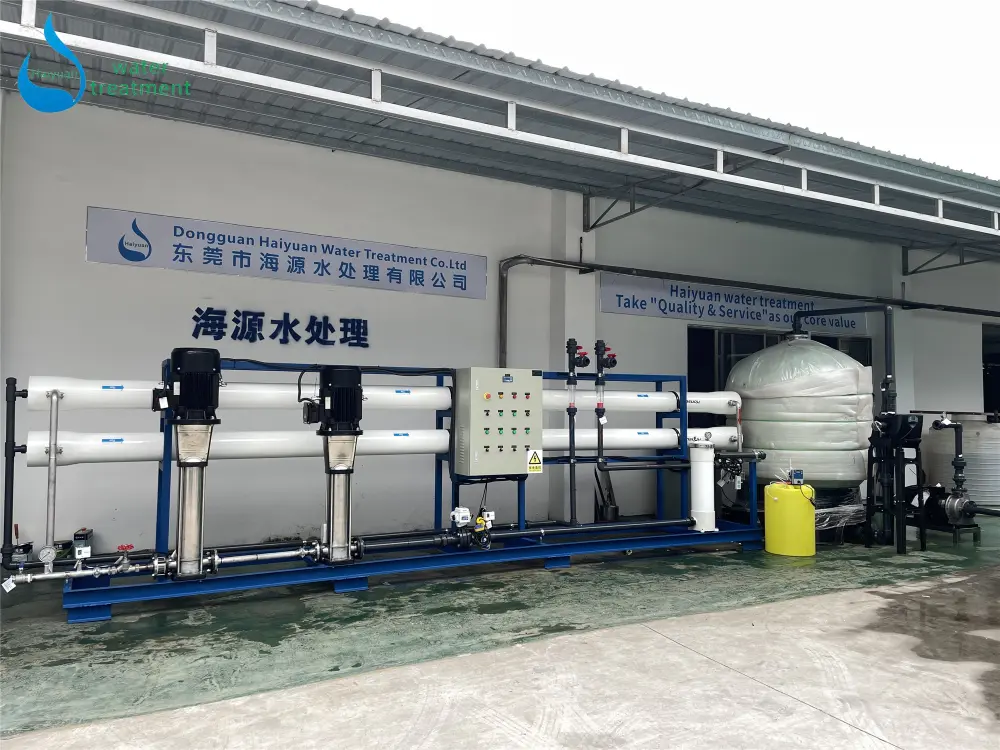
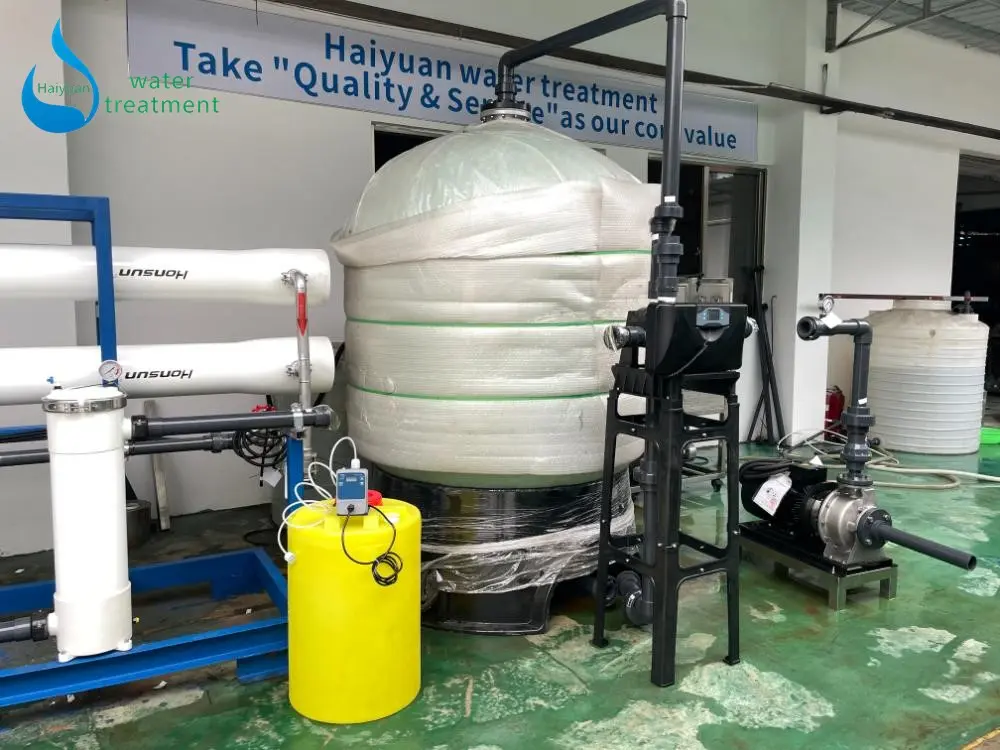
Borehole water filtration system flow:
A: Raw water tank—boosting pump—multi-media filter—activated carbon filter—softening filter—precision filter—high-pressure pump—RO—UV-ozone—product water tank
B: Source water tank →Feed water pump →muti- media filter(sands filter)→active carbon filter→water softener→ bag filter(or PP filter)→product water tank
| Component | Function |
|---|---|
| Raw/Source Water Tank | Stores the raw water. |
| Boosting/Feed Pump | Provides the required pressure for filtration and treatment. |
| Multi-media Filter | Removes large particles like sand and debris. |
| Activated Carbon Filter | Eliminates chlorine, organic compounds, and odors. |
| Softening Filter | Reduces water hardness by removing calcium and magnesium. |
| Precision/Bag Filter | Filters out fine particles, ensuring cleaner water. |
| High-pressure Pump | Creates the pressure necessary for reverse osmosis (RO). |
| Reverse Osmosis (RO) | Removes dissolved salts, metals, and other contaminants. |
| UV + Ozone | Sterilizes the water by killing harmful microorganisms. |
| Product Water Tank | Stores the final treated water. |
Haiyuan is a professional customized water treatment product manufacturer. Different raw water has different process flows. We design according to your needs.
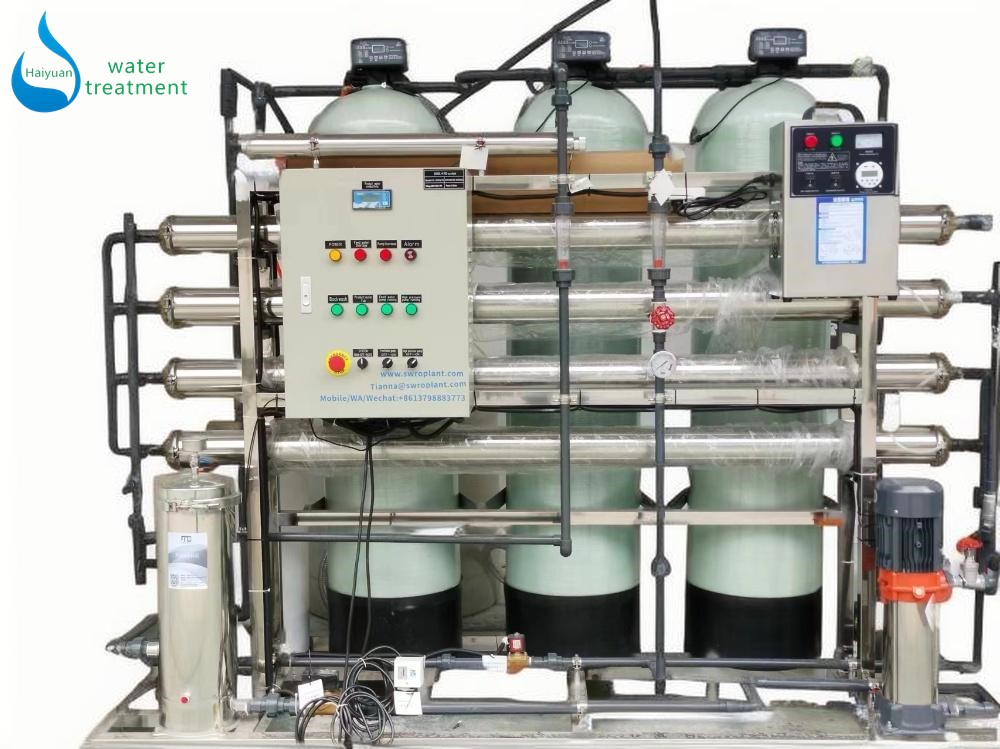
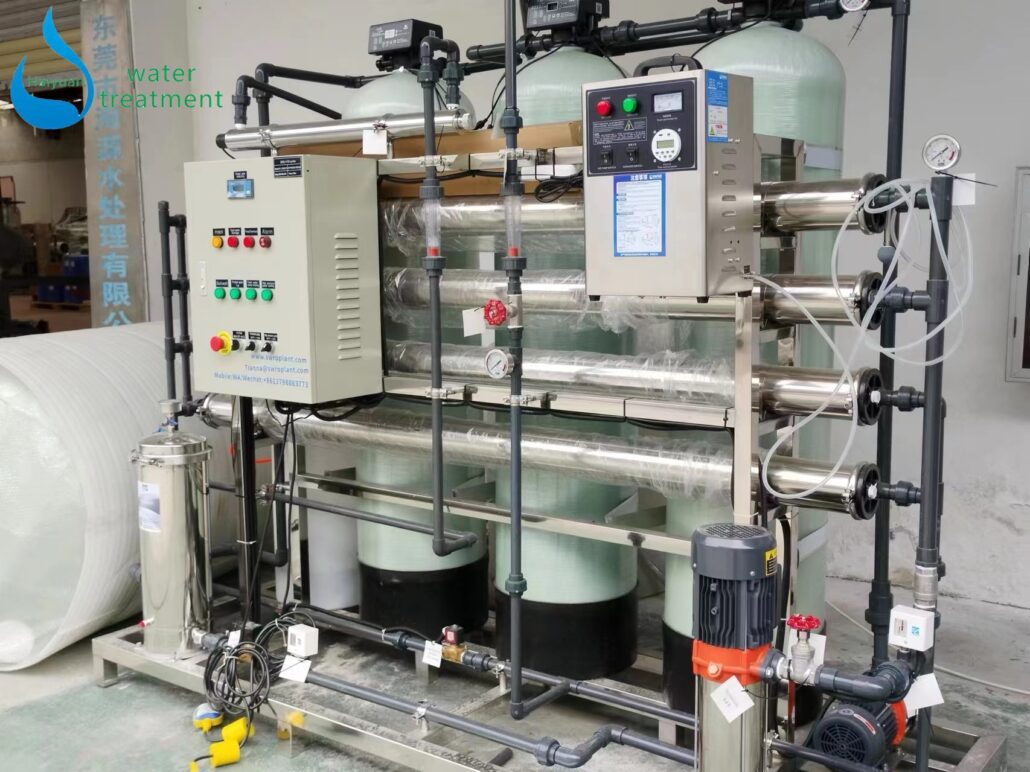
A:Reverse Osmosis Membrane Process (RO Membrane Technology)
Reverse Osmosis (RO) membrane technology is a highly effective and widely used water purification process. It relies on a semi-permeable membrane that allows only water molecules to pass through while blocking most contaminants, including salts, metals, and bacteria. The process is fundamental in both drinking water purification and desalination applications.
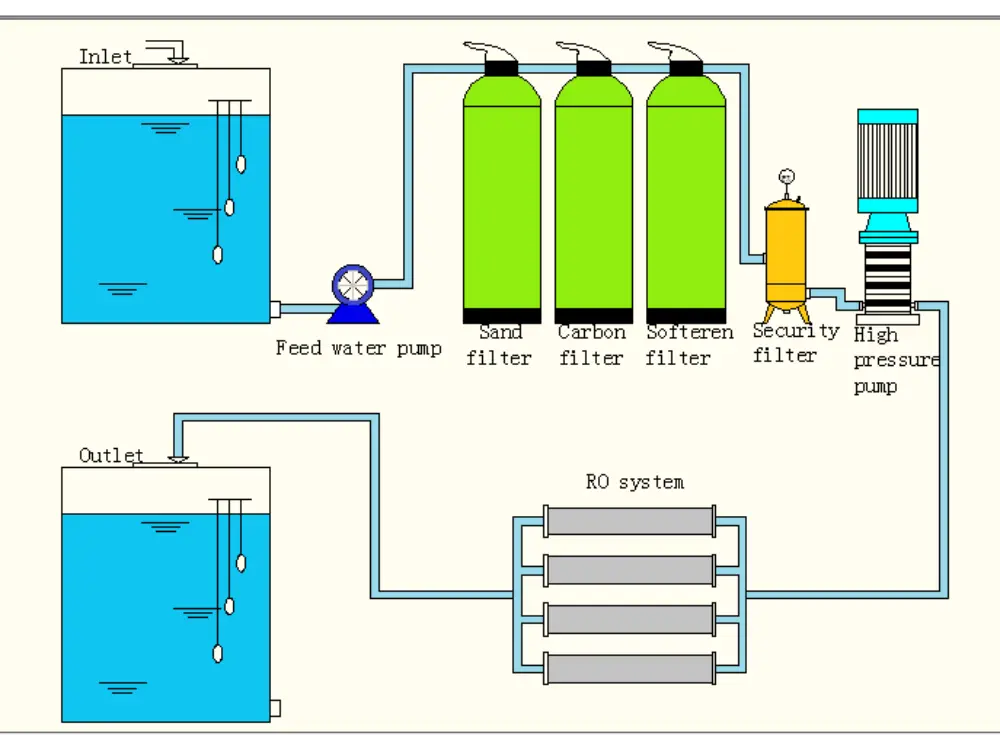
Sand filter/Multi-media filter and activated carbon filter
Multi-media filter and activated carbon filter are mainly used to remove large particle pollutants and chemical pollutants in water. Water softener solves the problem of water hardness and prevents scaling. Bag filter or PP filter is used for fine filtration to ensure purer water quality. Finally, the treated water is stored in the clean water tank and is ready for final use.
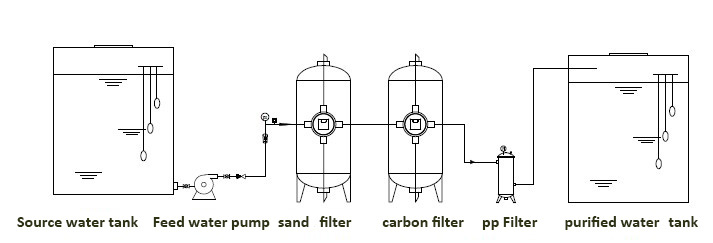
Features of RO purified water system
(1).Steady output water quality,consecutive running and apply the water quality widely;
(2).Easy operation,large water output and low running cost;
(3).Advanced technology, convenient for maintenance and small installation area;
(4).Physical desalting methods,Chemical-free regeneration,hazard-free waste liquid discharge,benefit to the vironment.
Why Choose a Borehole Water Filtration System?
-
Customization:
The filtration system can be customized to suit the specific needs of your water source. Whether the water is heavily contaminated or requires fine filtration, the system can be designed to address all types of impurities. -
Cost-Effectiveness:
Investing in a borehole water filtration system is a one-time expense that provides long-term savings by eliminating the need for bottled water and expensive water treatment services. -
Reliability:
Borehole water is a reliable source, especially in rural areas where access to municipal water systems may be limited. A well-maintained filtration system ensures that this water is safe for drinking and other household uses.
Applications of Borehole Water Filtration System
1. Household Use
Ensures clean and safe drinking water for daily use, reducing reliance on bottled water.
2. Agriculture
Provides clean water for irrigation, helping crops grow better and preventing soil or plant diseases.
3. Industrial Use
Supplies purified water for manufacturing, cooling, and cleaning, protecting equipment from damage.
4. Municipal Supply
Used in public water systems to provide safe water for towns and villages, especially in rural areas.
